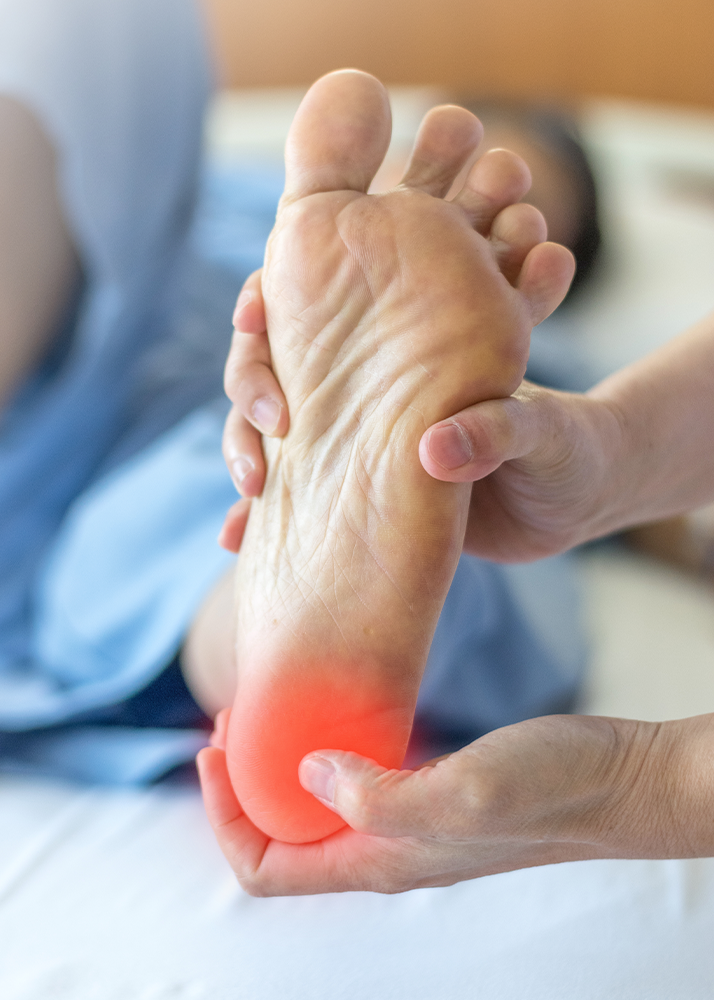Heel Pain

Comprehensive Heel Pain Relief
Expert Diagnosis and Treatment for All Types of Heel Pain
Heel pain is one of the most common foot complaints that can significantly impact your daily activities, making every step uncomfortable and limiting your mobility.
Our comprehensive heel pain treatment program focuses on accurately diagnosing the underlying cause of your discomfort and developing targeted solutions for lasting relief. We provide thorough evaluations using advanced diagnostic techniques to identify the specific structures causing your pain, then create personalized treatment plans that may include custom orthotics, physical therapy, anti-inflammatory treatments, injection therapies, shockwave therapy, and specialized stretching programs.
Our goal is to eliminate your heel pain, restore normal walking patterns, and help you return to your active lifestyle without limitations. From conservative management approaches to advanced interventions when necessary, we're committed to providing you with effective treatments that address both immediate pain relief and long-term heel health.
Start Your Journey to Wellness Today
Talk With Foot and Ankle Specialist Today!
Ready to take the first step towards healthier, pain-free feet? Contact us to schedule an appointment or to learn more about our foot and ankle services. Our dedicated podiatric team is here to provide personalized care and answer any questions you may have about your lower extremity concerns. Reach out today and let us help you achieve optimal foot health and mobility for an active lifestyle.

